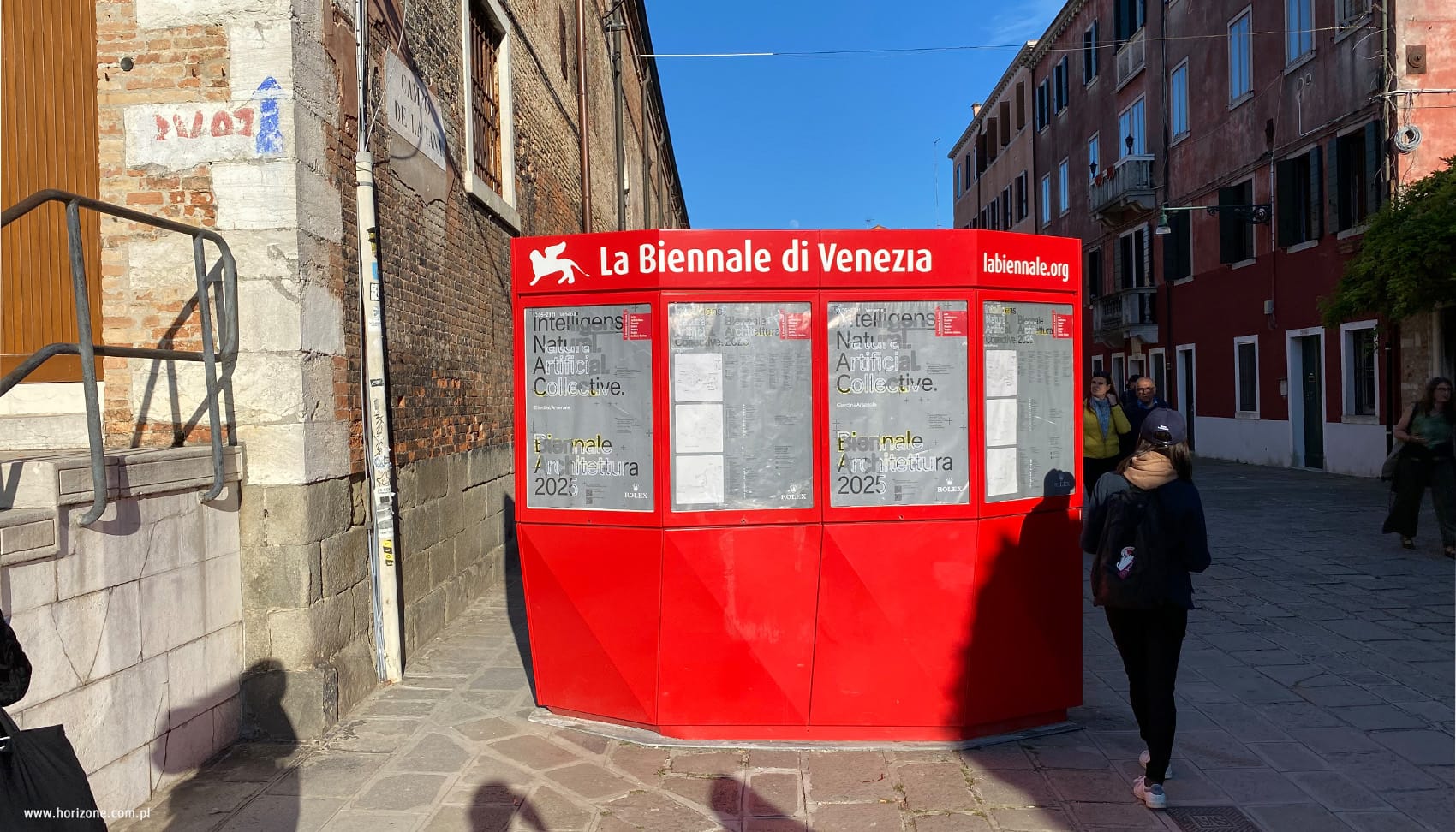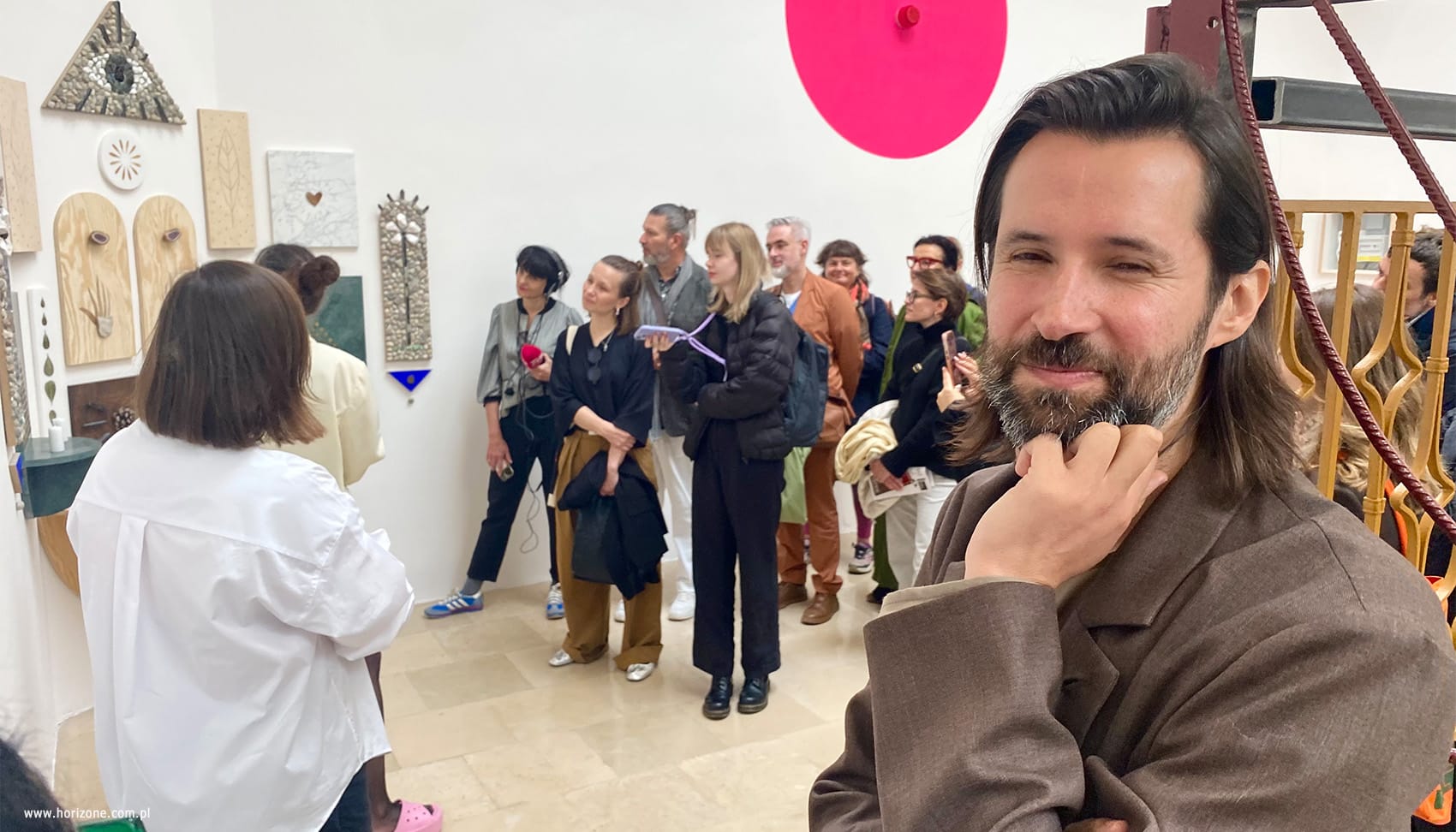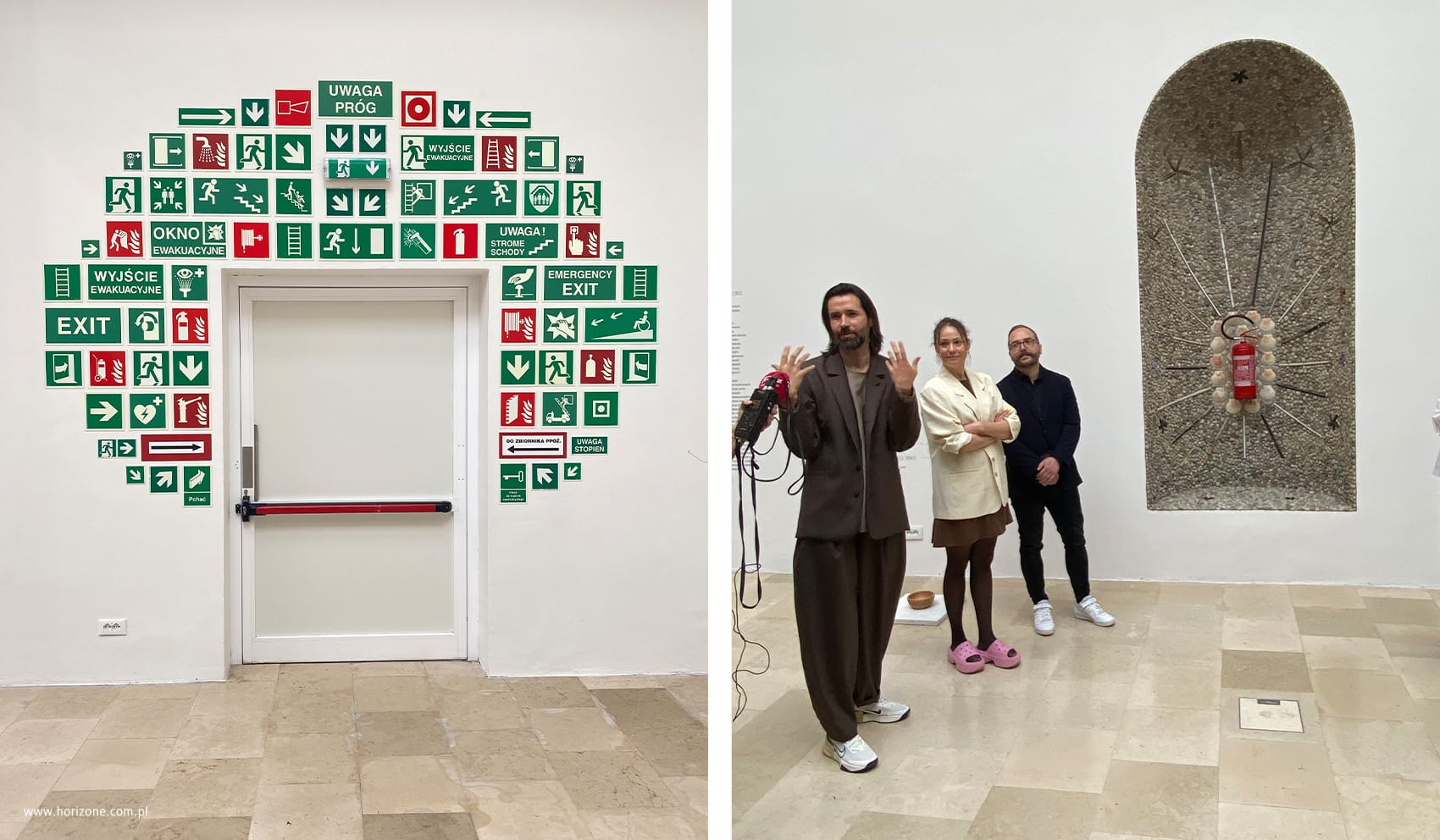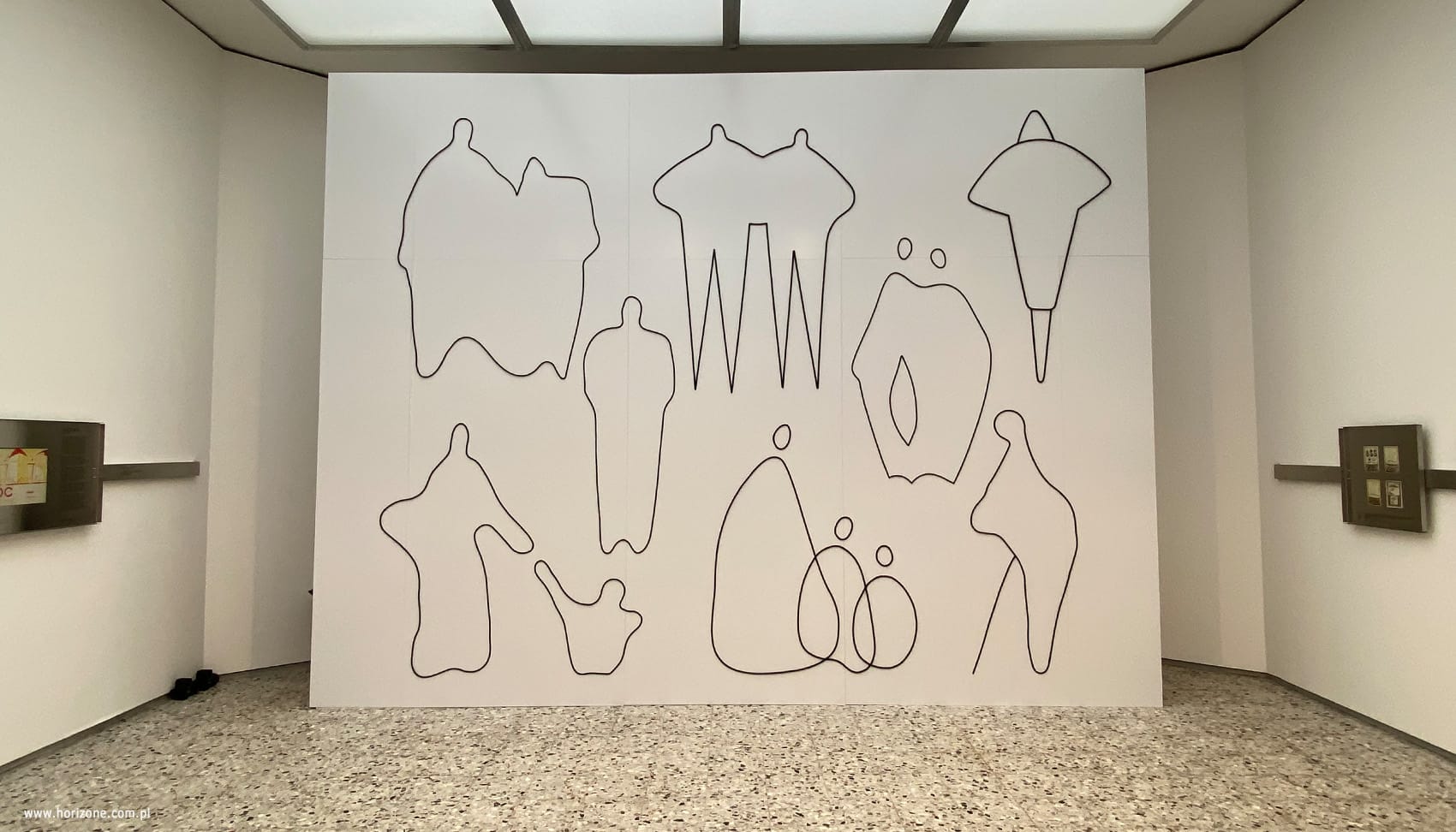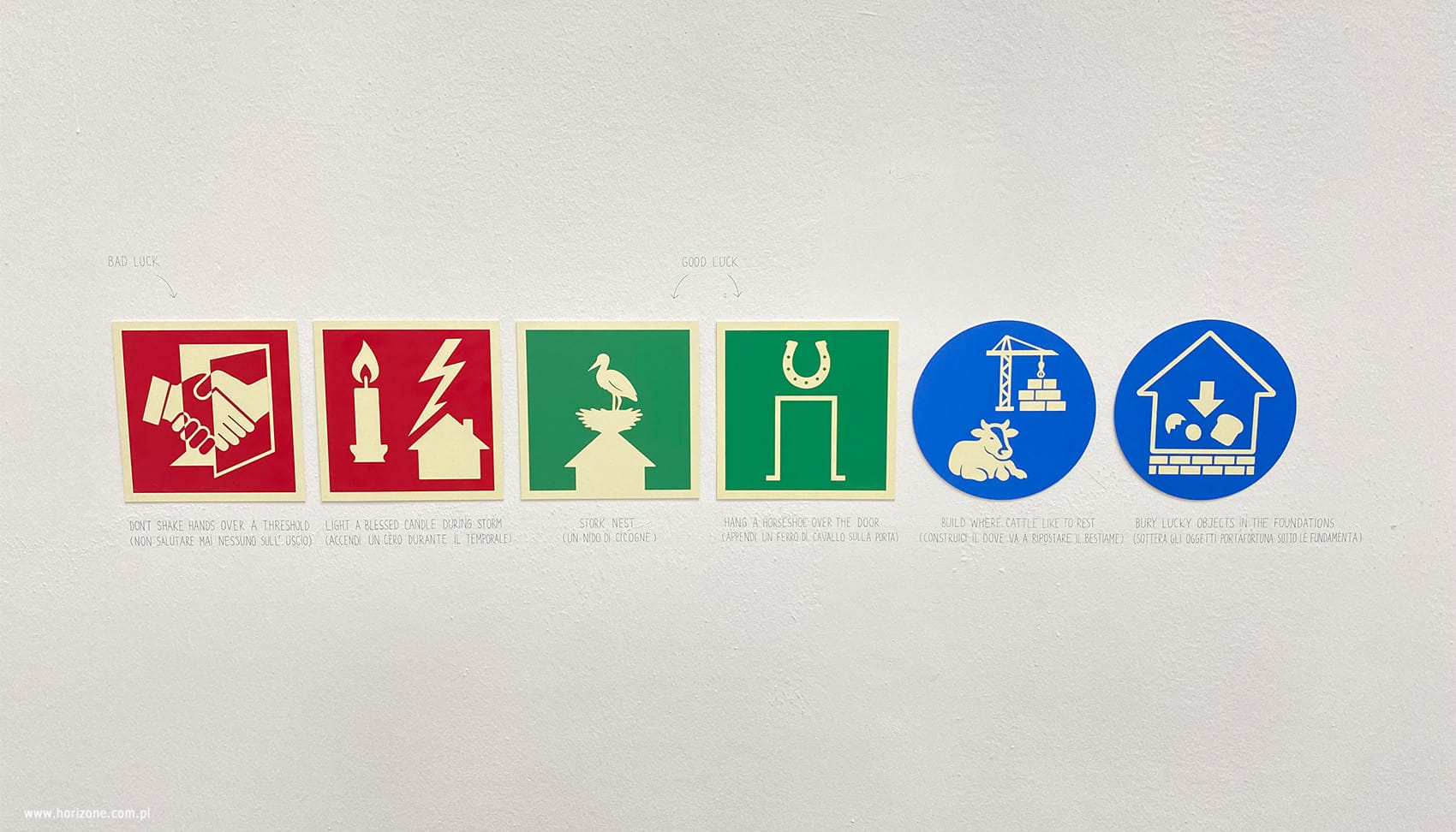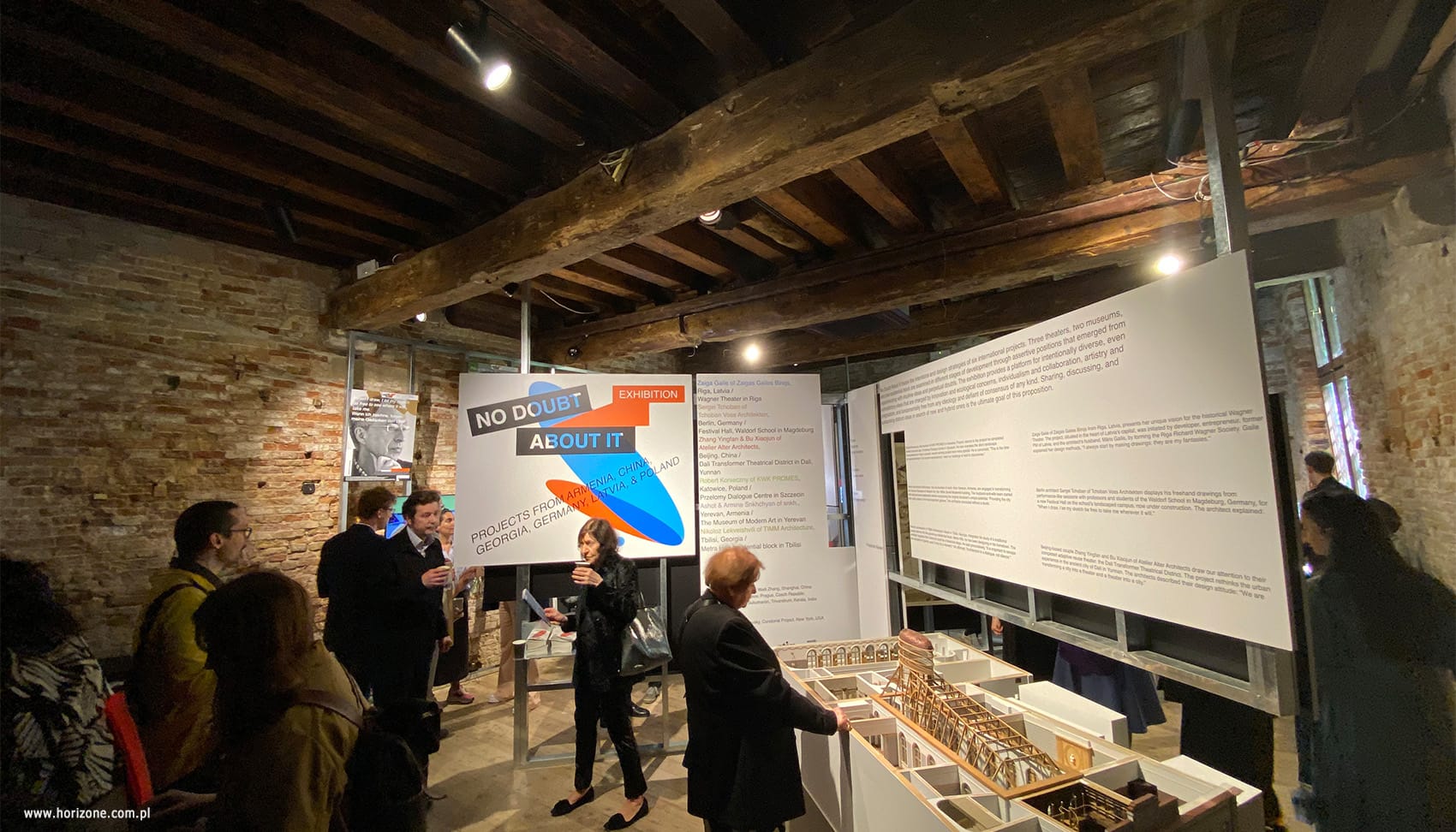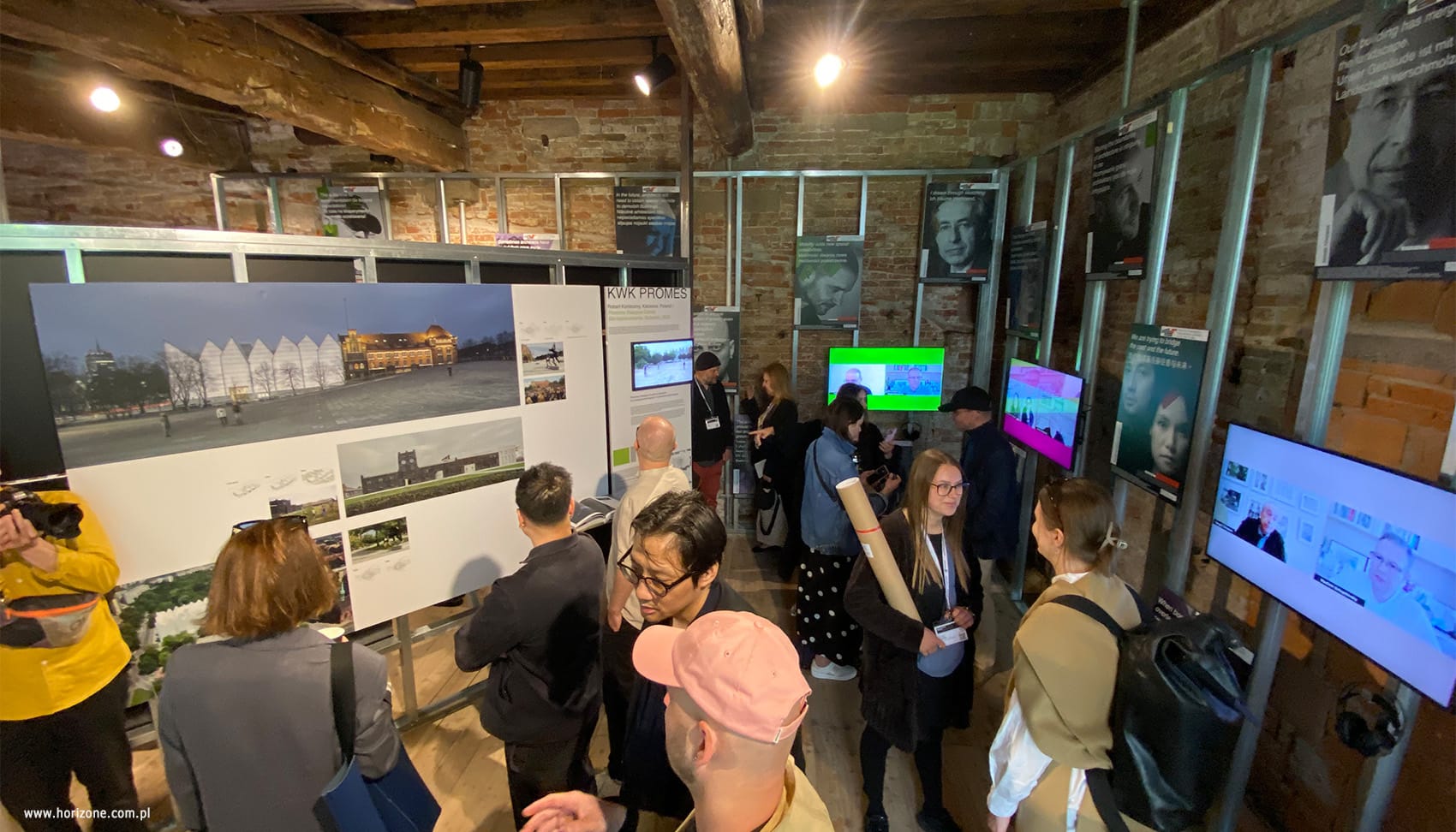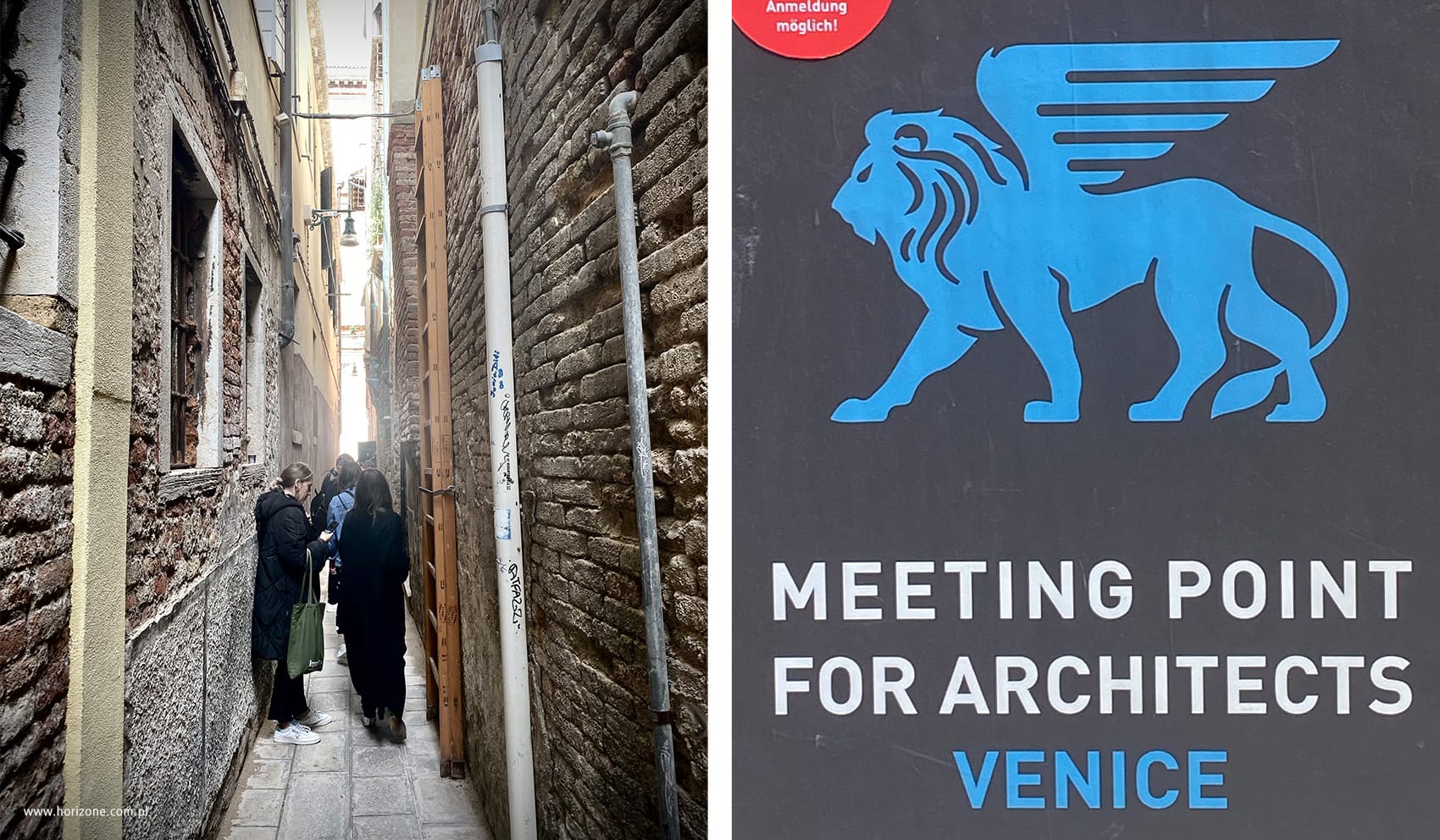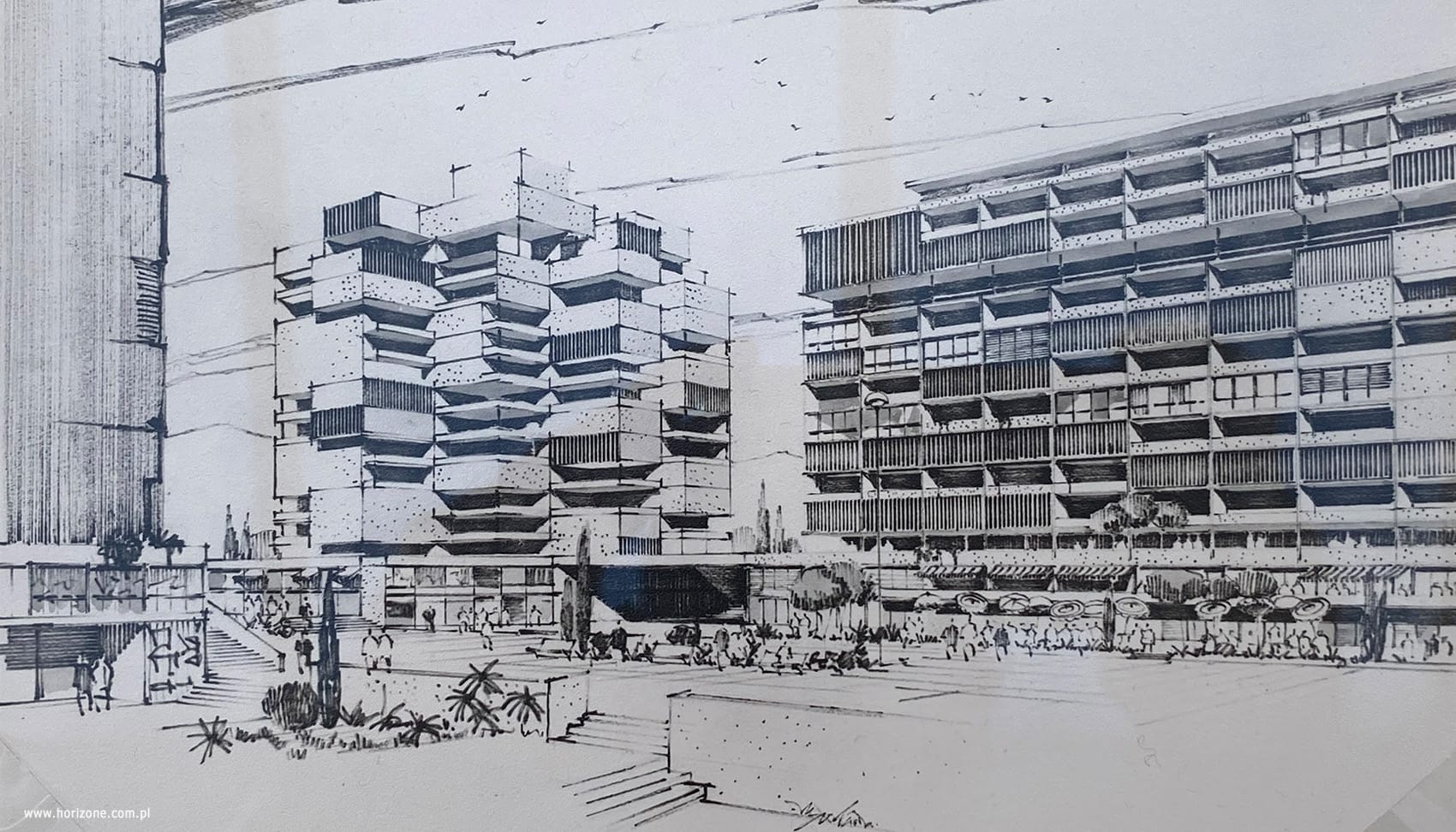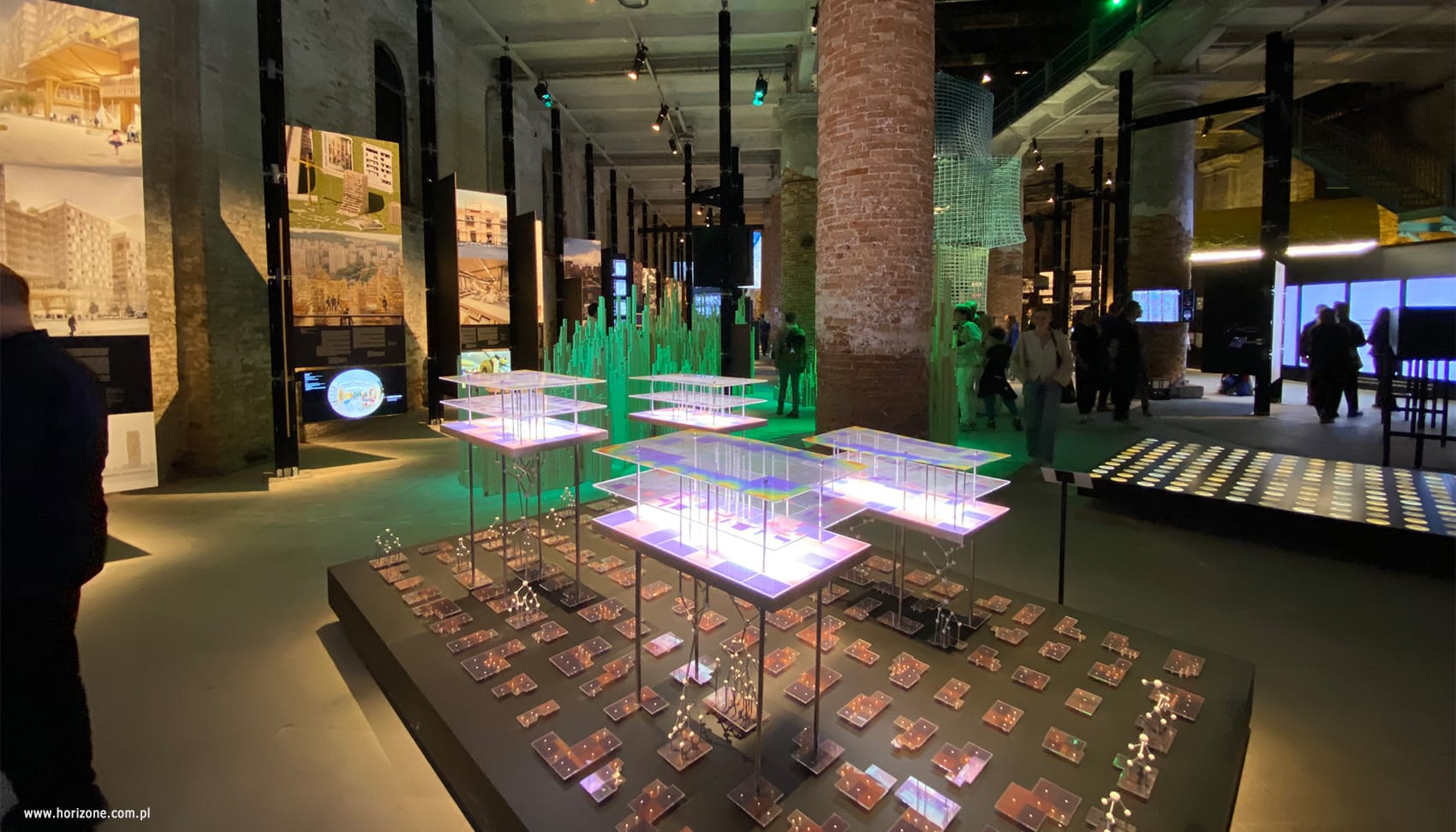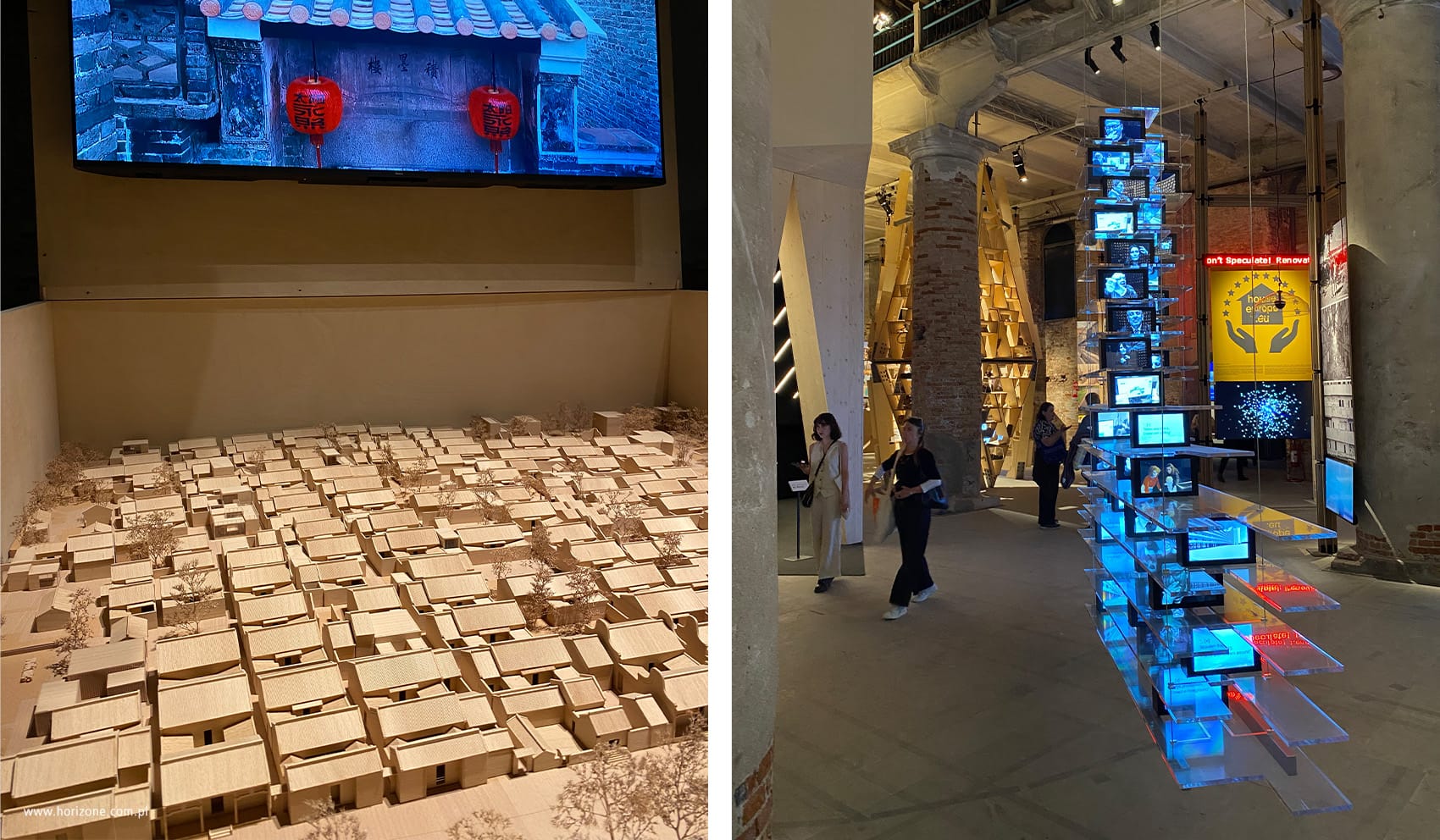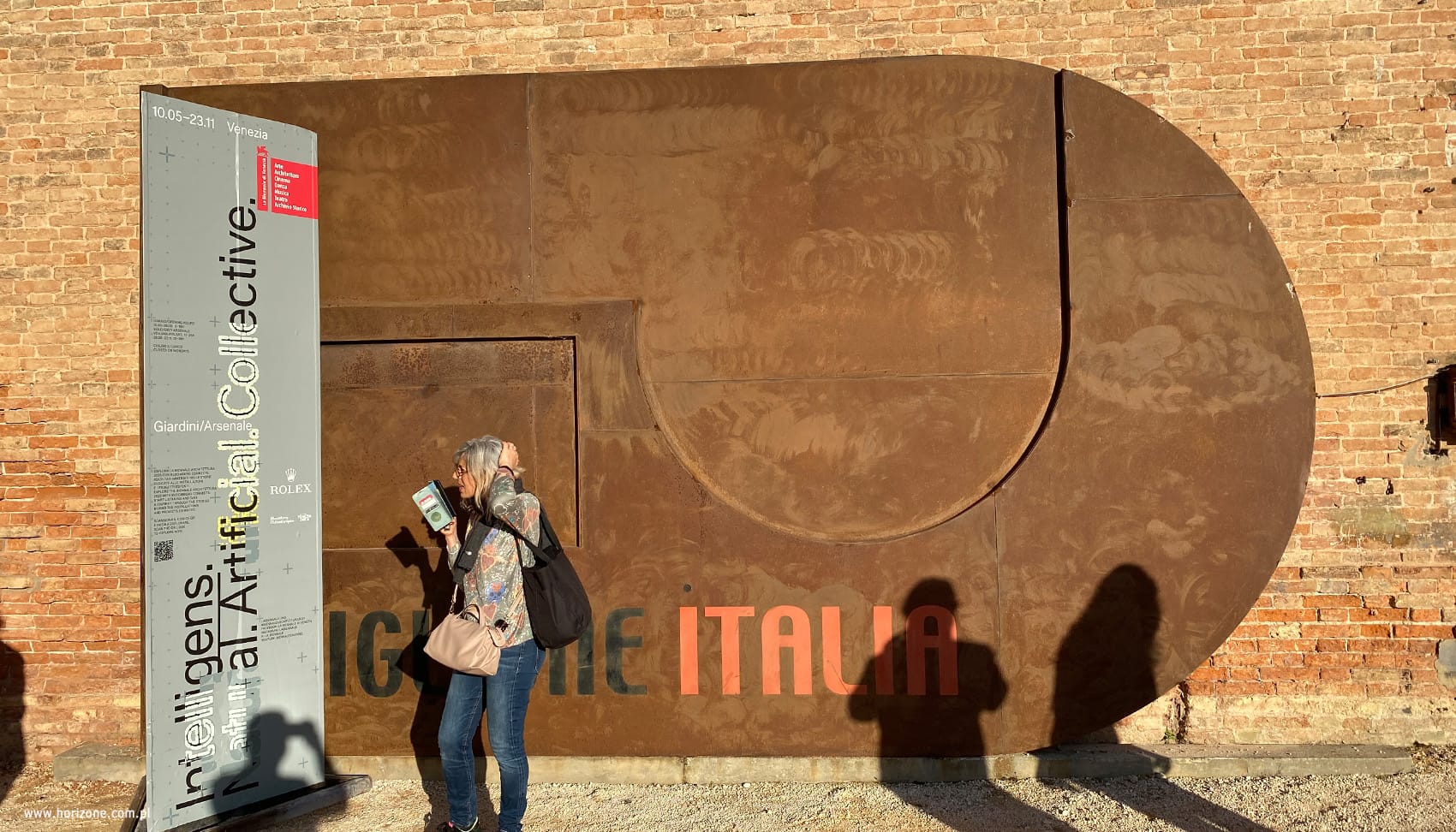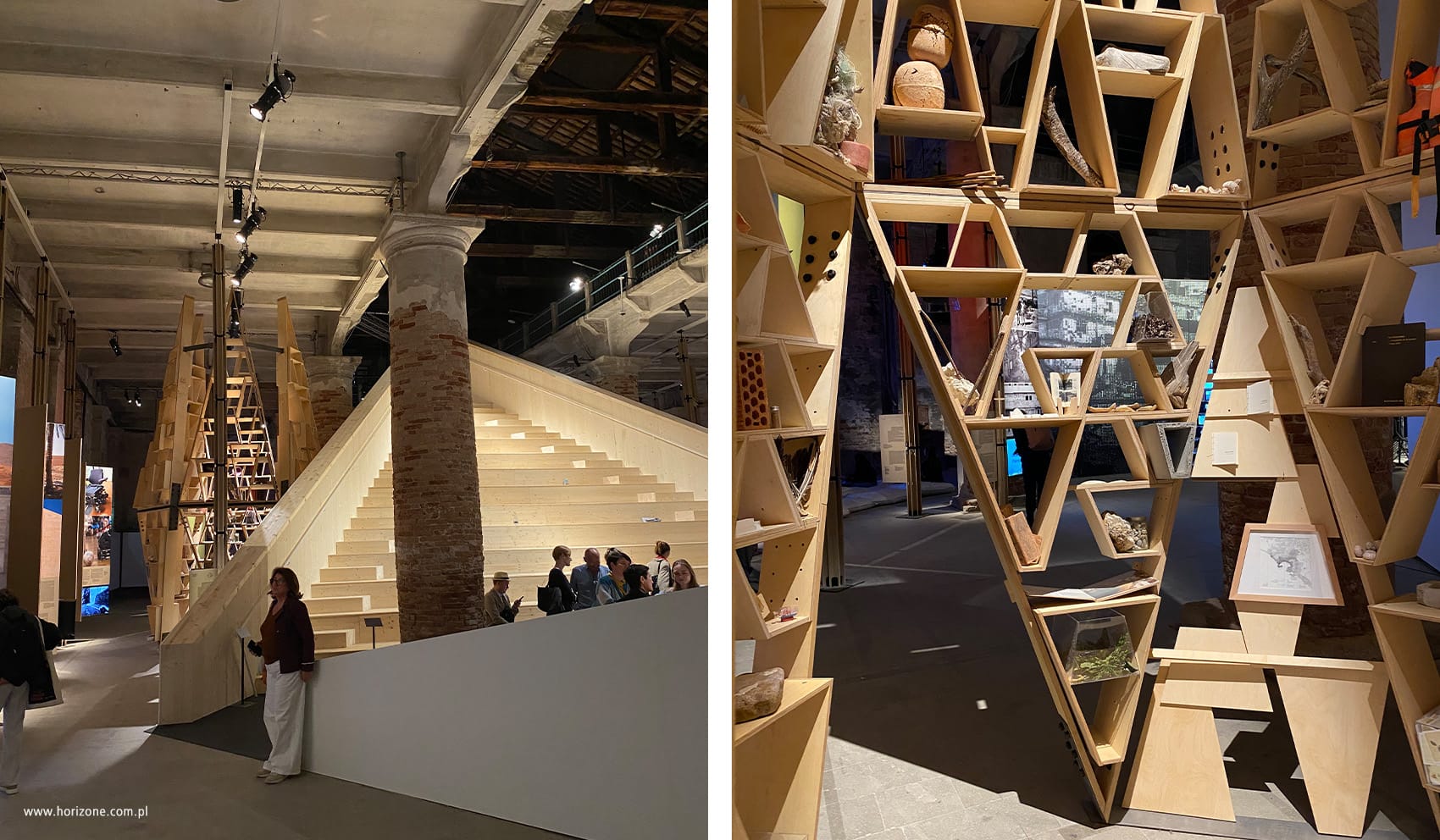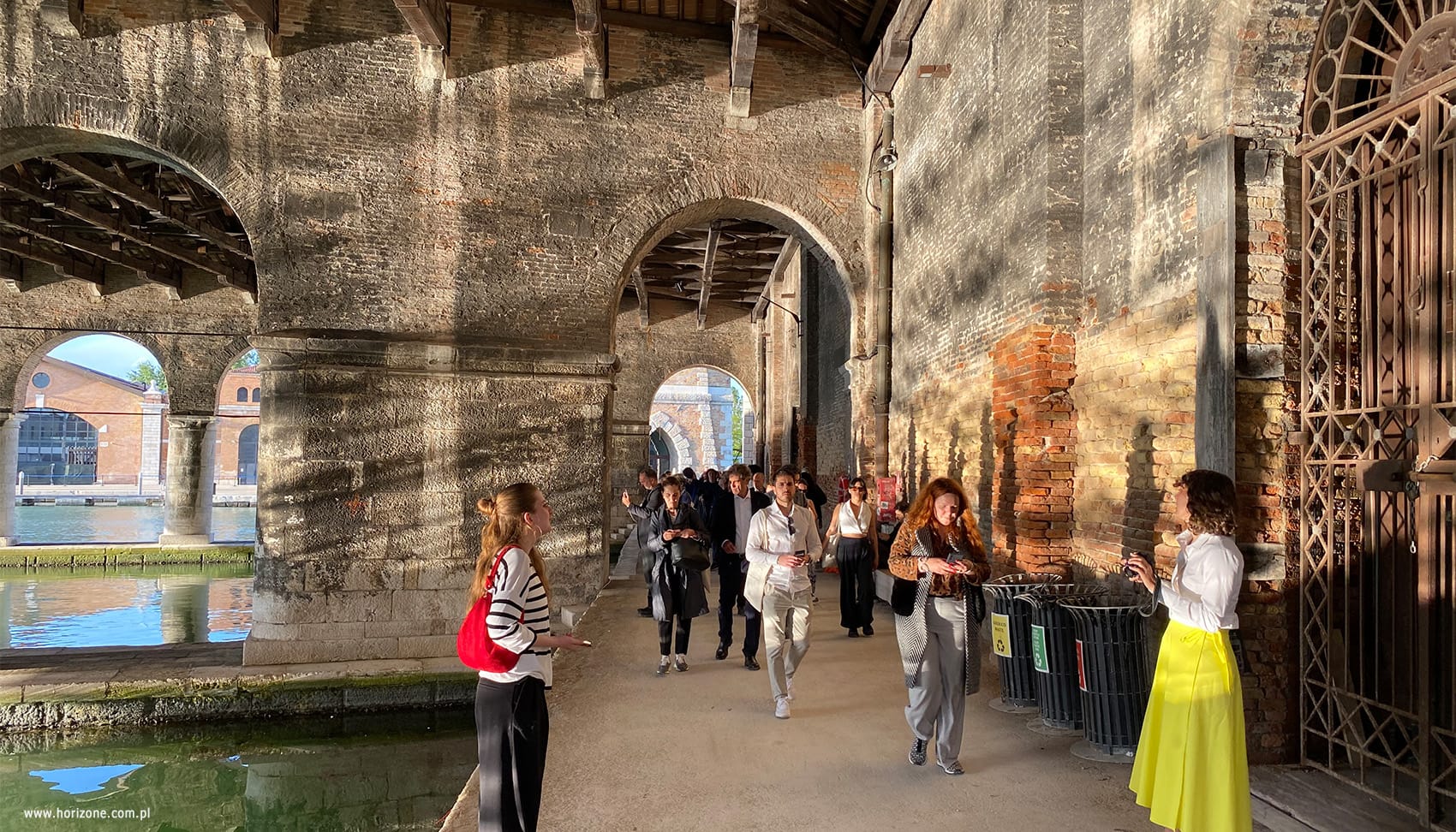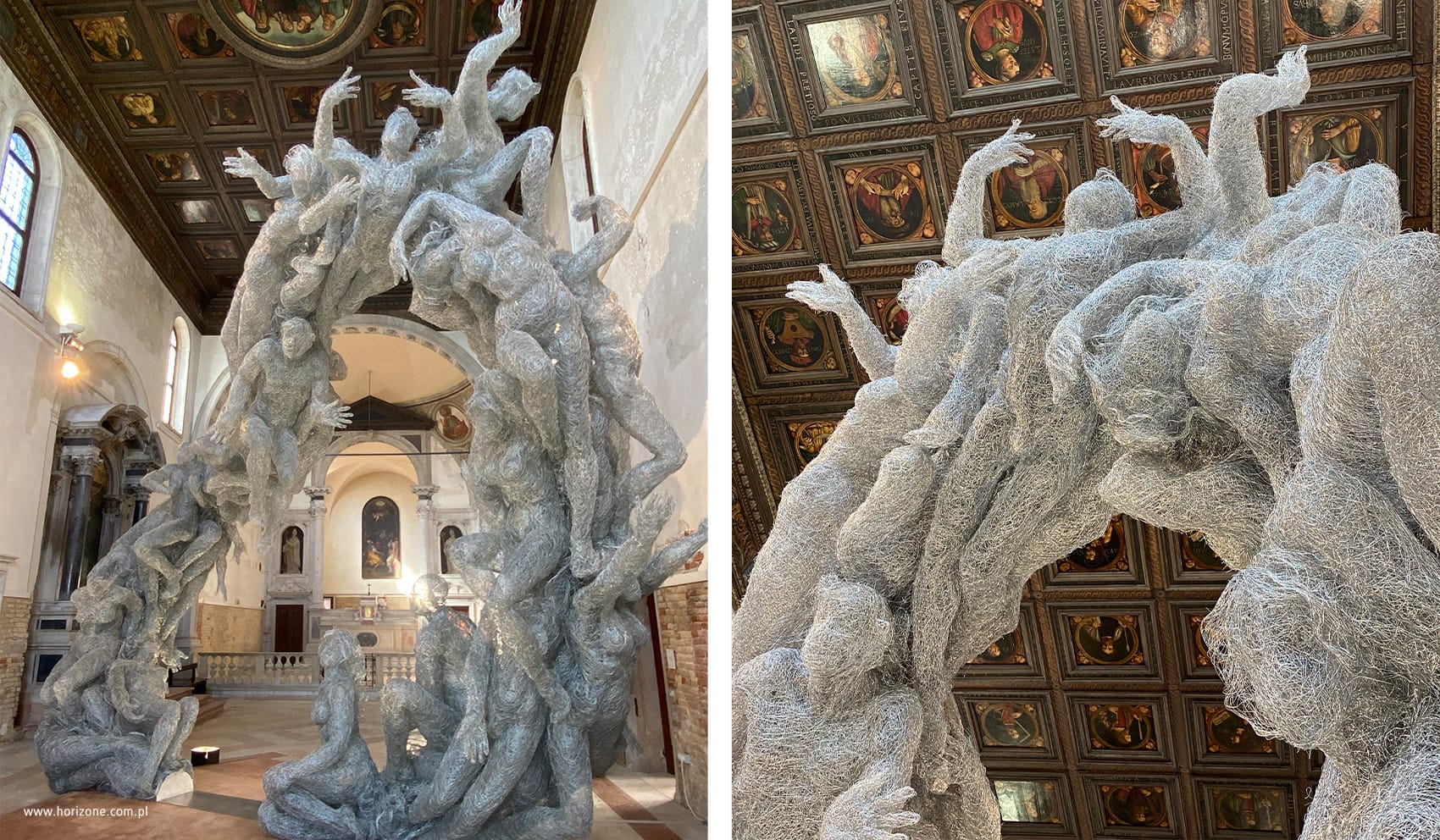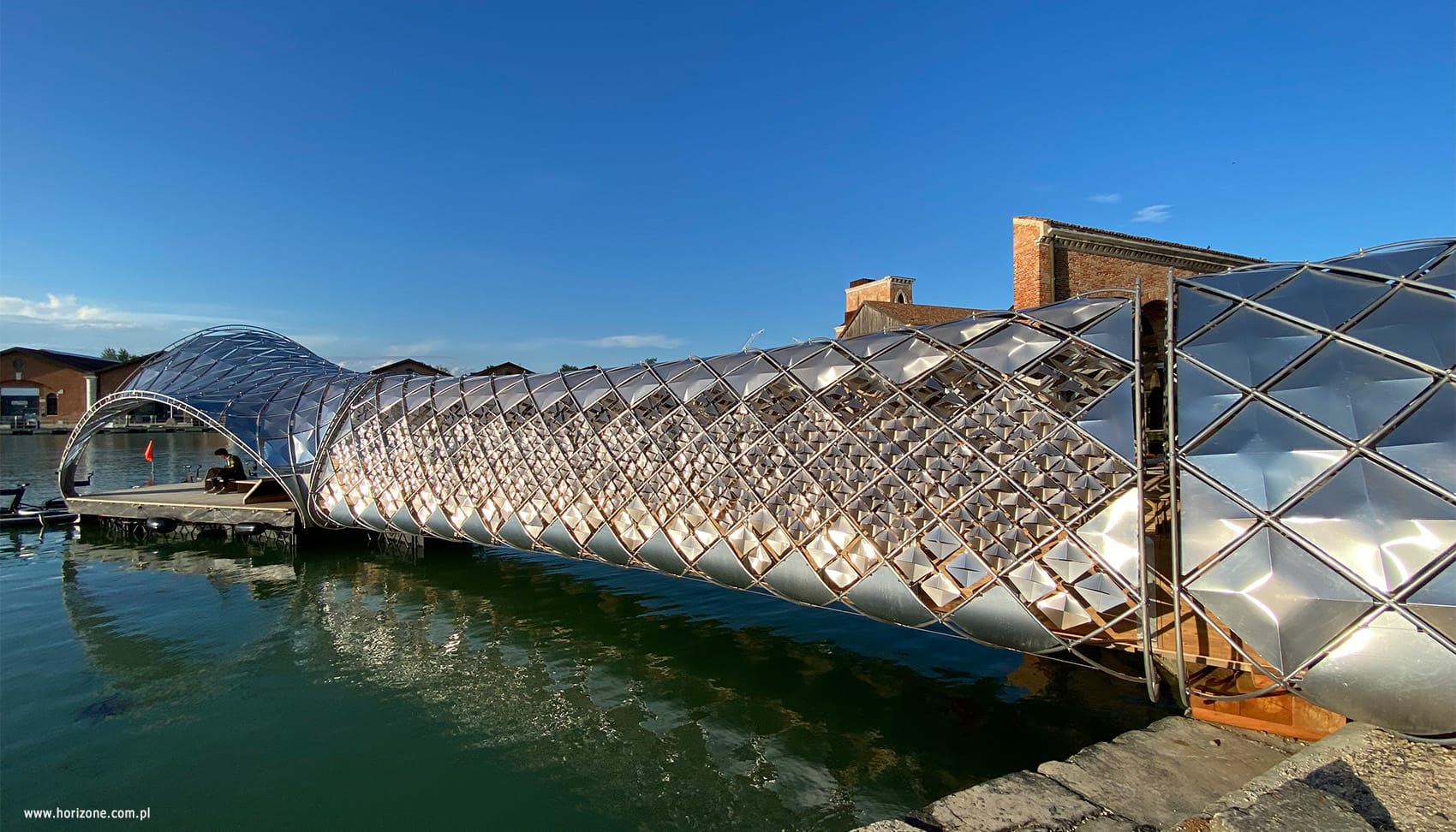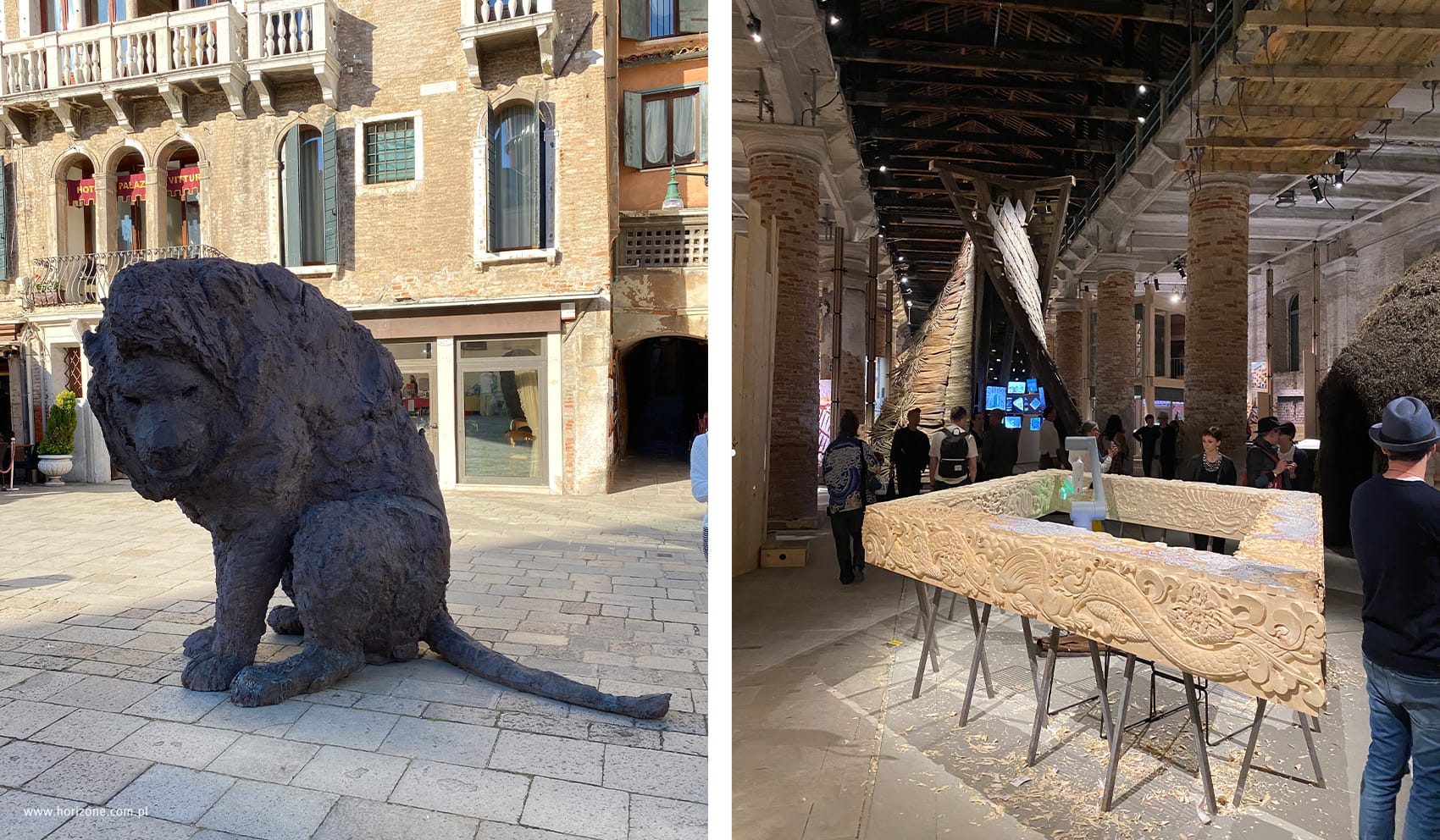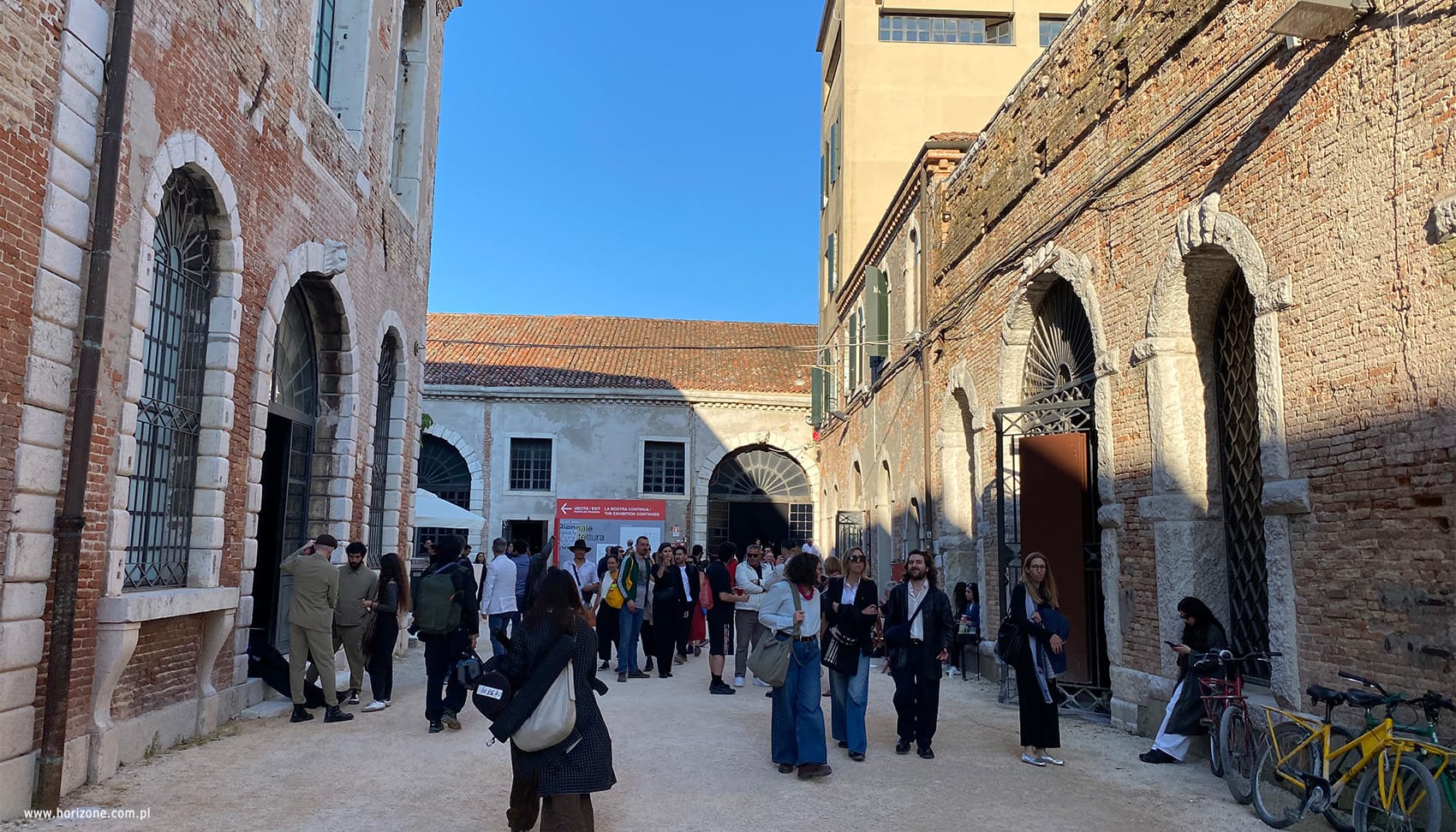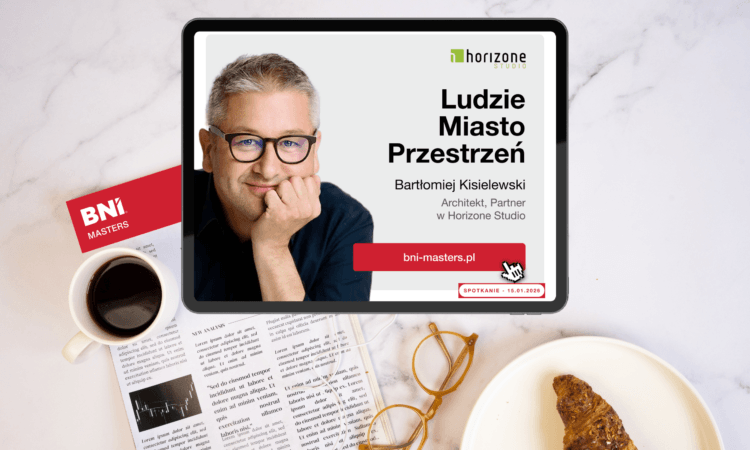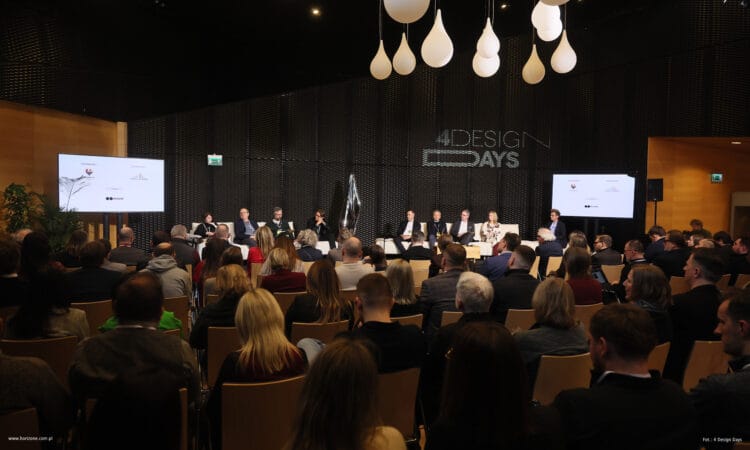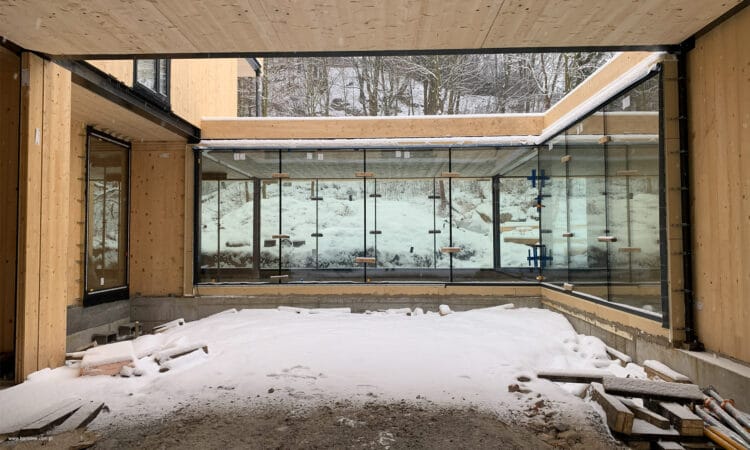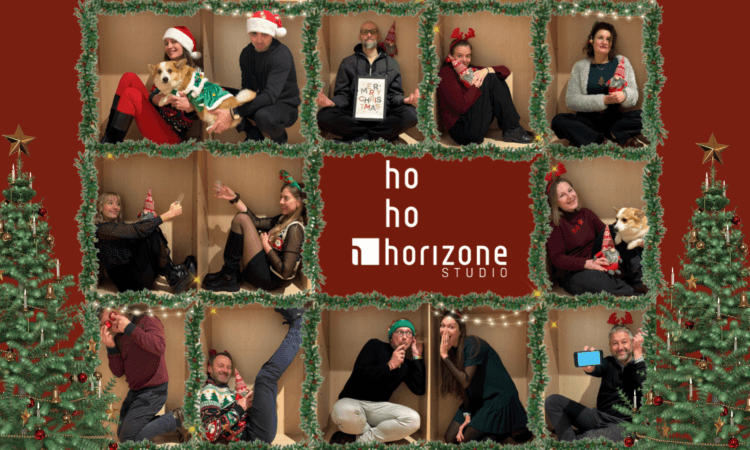The exhibition is spread over three main locations: the pavilions in Gardini, the Arsenale and selected places in the centre of Venice. The event presents not only architectural projects, but also ideas from the borders of art, science, engineering, biology and social sciences, showing architecture in a broad, multidimensional context.
Four methodological pillars of the exhibition
- Transdisciplinarity, or cooperation beyond the divisions of fields;
- Living Laboratory, changing the city into an experimental space;
- Space for ideas, opening up to the public voice and diverse visions;
- Circularity Protocol, setting new standards for sustainable events.
Polish Pavilion
During our stay in Venice, we could not miss a visit to the Polish Pavilion entitled “Lares and Penates. On Building a Sense of Security in Architecture”. The exhibition addresses extremely current issues related to the threats of modern times: from climate disasters, through armed conflicts, to forced labor. The exhibition prepared by an interdisciplinary team showed how both technical and symbolic elements of architecture can support people in building a sense of security. The exhibition was prepared by a team consisting of Aleksandra Kędziorek, Krzysztof Maniak, Katarzyna Przezwańska and Maciej Siuda.
No Doubt About It Exhibition
On May 8, at the historic Palazzo Contarini Polignac, we had the opportunity to see the exhibition “No Doubt About It,” curated by the American architecture critic Vladimir Belogolovsky. The exhibition featured six exceptional projects – three theaters, two museums, and a residential building – located in Armenia, China, Georgia, Germany, Latvia, and Poland. Among the selected projects was also a project by Robert Konieczny’s KWK Promes studio.
The Biennale will last until November 23, 2025. We encourage all enthusiasts of architecture, art and science to visit Venice and immerse themselves in this extraordinary, reflective space. This is an experience that inspires the search for new answers to the challenges of the modern world – exactly as we want to do at Horizone Studio.
We encourage you to visit!

